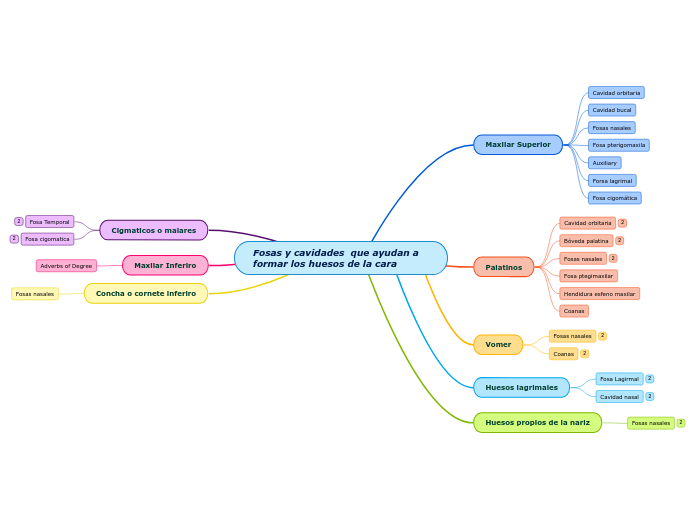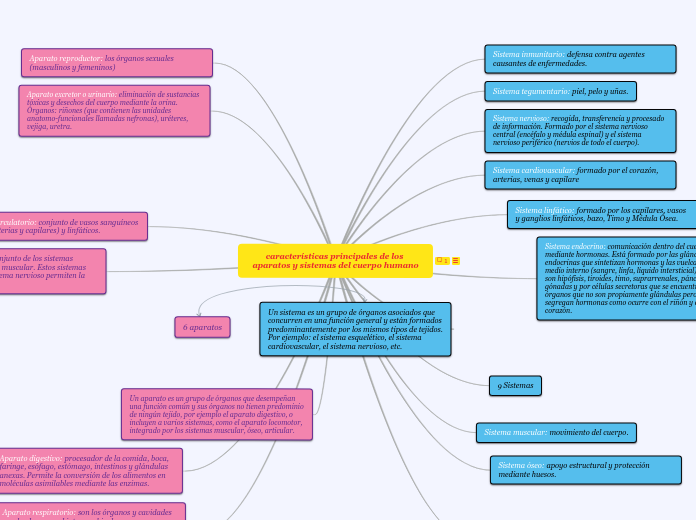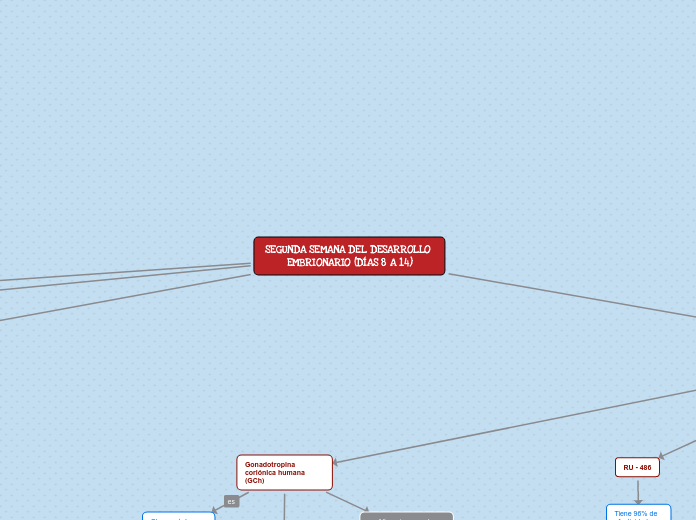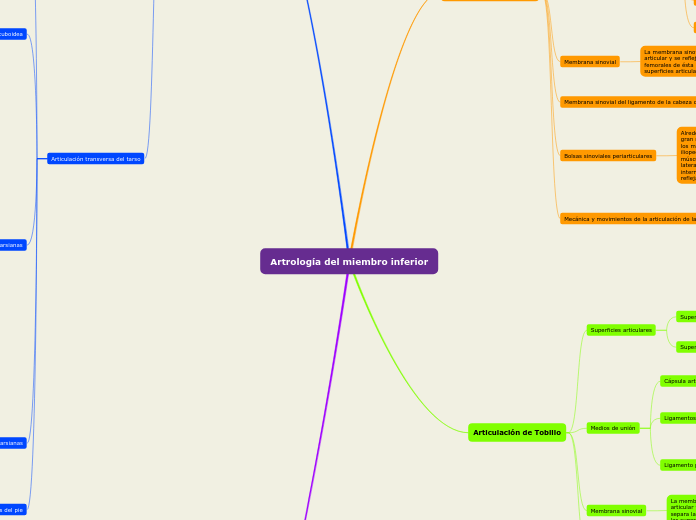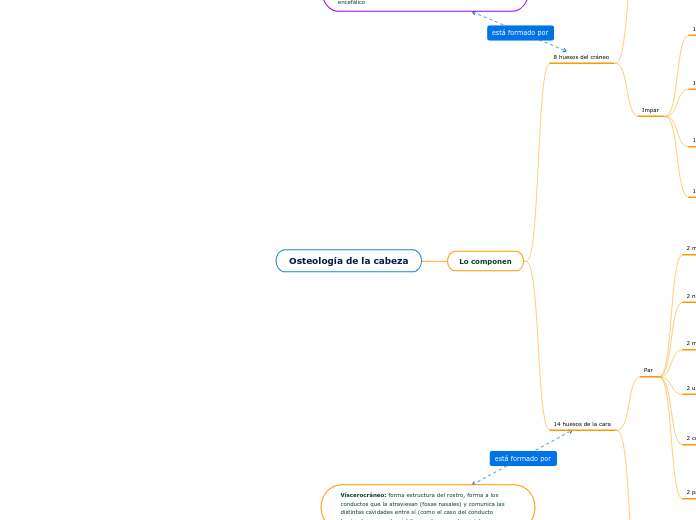Fosas y cavidades que ayudan a formar los huesos de la cara
The part of speech is a category to which a word is assigned according to its syntactic functions. In English the main parts of speech are noun, pronoun, adjective, determiner, verb, adverb, preposition, conjunction, and interjection.
Concha o cornete inferiro
An interjection is used to express emotion in a sentence.
Think of other interjections!
Maxilar Inferiro
An adverb is used to describe a verb, but it can also describe an adjective or another adverb.
Adverbs normally help paint a fuller picture by describing how something happens.
Adverbs of Degree
The intensifiers strengthen adverbs adjectives and adverbs and down- toners make them weaker.
Cigmaticos o malares
A numeral is a word or phrase that describes a numerical quantity.
Some theories of grammar use the word 'numeral' to refer to cardinal numbers that act as a determiner to specify the quantity of a noun, for example the 'two' in 'two hats'.
Fosa cigomatica
One, two..
Fosa Temporal
First, second..
Huesos propios de la nariz
An article is a word used to modify a noun, which is a person, place, object, or idea. Technically, an article is an adjective, which is any word that modifies a noun.
It refers directly to a specific noun or groups of nouns.
The breakfast on my plate.
Huesos lagrimales
A pronoun is a word that can be used in place of a noun, typically after the noun itself has already been stated.
Cavidad nasal
Demonstrative pronouns are used to demonstrate (or indicate). This, that, these, and those are all demonstrative pronouns.
This, These
Fosa Lagirmal
Possessive pronouns are used to show possession. The possessive pronouns are mine, yours, his, hers, ours, and theirs.
His, Your
Vomer
An adjective is a word that's used to describe a specific noun and to provide more detail to the listener.
Superlative adjectives demonstrate a higher level of comparison between entities.
She is the prettiest princess.
Expresses a comparison between two entities or groups of entities in quality or degree.
He is taller than she is.
Palatinos
A noun is defined as a person, place, thing or idea. Proper nouns always begin with a capital letter. Common nouns, which are general words, such as 'cars,' are not capitalized.
Coanas
Hendidura esfeno maxilar
Fosa ptegimaxilar
Compound nouns are words where two nouns have been stuck together to make a new noun. Compound nouns should be written as one word, without a hyphen.
A noun which refers to a group of things/people.
Family, Class
Bóveda palatina
Countable nouns are nouns that can be counted, even if the number might be extraordinarily high.
Uncountable nouns are nouns that come in a state or quantity which is impossible to count; liquids are uncountable, as are things which act
like liquids.
Cats, Rain
Proper nouns are the names of specific people or places. They should always begin with a capital letter.
Create sentences
Mary, Paris
Maxilar Superior
A verb is an action word or 'doing' word that signifies movement in some way.
Fosa cigomática
Forsa lagrimal
Auxiliary
An auxiliary verb helps the main (full) verb and is also called a 'helping verb.' With auxiliary verbs, you can write sentences in different tenses, moods, or voices.
Fosa pterigomaxila
A participle is a verb form that can be used as an adjective or to create a verb tense. There are two types of participles: Present participle (ending -ing) and Past participle (usually ending -ed, -d, -t, -en, or -n).
Fosas nasales
A modal is a type of auxiliary (helping) verb that is used to express: ability, possibility, permission or obligation. The main modal verbs in the English language are: can, could, may, might, must, shall, should, will, would.
Cavidad bucal
A linking verb connects the subject with a word that gives information about the subject, such as a condition or relationship.
Cavidad orbitaria
A verb with its own meaning: a verb that is not an auxiliary verb.
